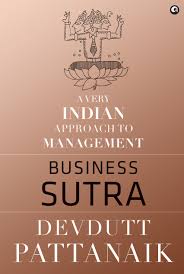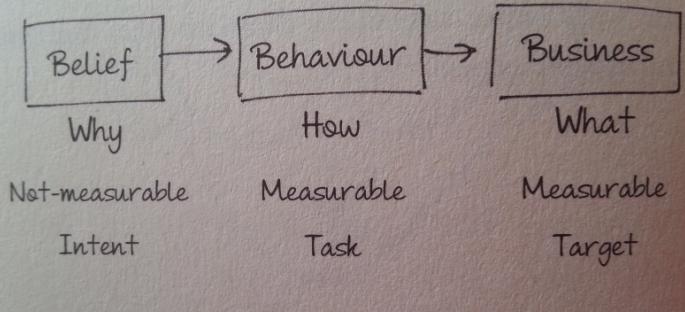Each one of us would agree that Indian Mythology is very rich & there are tons of things that can be learnt from it. If we look back at our day to day life, everything that we do has someway or the other got some mythological angle to it !! It would be interesting if the two dots namely “Mythology” & “Business” are connected & this is what forms gist of the book – “Business Sutra” by Devdutt Pattanaik.
 About the author
About the author
Dr. Devdutt Pattanaik is an Indian physician turned leadership consultant, mythologist and author whose works focus largely on the areas of myth, mythology & management. He is the Chief Belief Officer,CBO of “Future Group” bringing the wisdom of Indian mythology into Indian business, especially in human resource management [Source – Wikipedia]
Detailed Review
Business Sutra uses stories from Indian [particularly Hindu, Buddhist & Jain] mythology & shows how it’s learning’s can be used to run a small/medium sized business or in our day to day work in a large corporation [MNC]. Diagrammatic representation of the mythological characters makes the book an interesting read, without which the reader would have do lot of research to understand the connections !!!
Some of the important key take away’s from the book are given below [excerpts taken from the book]:
3B Framework
It briefly describes the the connection between “Belief” & “Business” & calls it the 3B Framework – Belief, Behavior & Business. The author says “Belief plays a key role in business: it determines choices and propels the decisions of buyers & sellers, regulators and shareholders, investors & entrepreneurs, employers & employees, vendors & customers. It determines how we do business and what ultimately gets done.” As is Belief, so is Behavior, so is Business i.e. Business is a direct outcome of our Behavior, which in turn is influenced by our belief.
Lakshmi – Wealth, Durga – Power that grants security & authority, Saraswati – Human Imagination & Knowledge. Only a person who understands that philosophy is the seed of all economic & political decisions can understand that every human being has a different philosophy & only the wise are able to accommodate everybody’s philosophy. Entrepreneurs & risk- taking investors are the best examples of this category !!!
Being a “Sattva”
Each person has different Guna [personality] & they are broadly classified into three categories – Tamas, Rajas, Sattvas. A person with “Tamas” guna will agree with what majority says. He of “Rajas” guna will see Lakshmi [wealth] as the end target. He of “Sattva” guna will see Lakshmi as an indicator of personal growth. In most societies, people with “Tamas” guna form the majority pack which is directed by the minority pack of “Sattva” guna.
- Every Devata seeks a high Return On Investment [ROI].
- We have to make room for others.
- He who takes the call is a Karta & everyone is a potential Karta.
- A Karta who allows & enables others to take a call is called a “Yajaman”.
- Size of the contribution does not matter.
- Not everyone can handle the burden of “Uncertainty”
- Decisions are contextual. If the decisions are good, the Yajaman is beneficiary & if they are bad, the Yajaman alone is responsible.
- Regeneration ensures sustainable wealth.
- He who satisfies hunger becomes “desirable”.
- Strategy is the force than tactic is the counter-force.
- If Ambition is the force than Contentment is the counter-force.
- If Creativity is the force than Process is the counter-force.
- Upstream forces need to be balanced by Downstream forces.
- Balance is the key to avoid tug of war.
- Impact of an organizational decision varies depending on the source.
Closing Thoughts
“Business Sutra” makes a very interesting read & it brings a fresh and whole new dimension to Business & Mythology. It’s definitely not a breezy read & the reader might need to get into the “mythological” groove to get the best “Sutra(s)” of “Business Sutra” !!!
The book is available on Flipkart here [though the status indicates “Back in Stock Soon” which itself speaks for the awesome work done by Dr. Devdutt Pattanaik :)]
This review is a part of the biggest Book Review Program for Indian Bloggers. Participate now to get free books !




 Whether you are into a job or doing some business; it is very important to be
Whether you are into a job or doing some business; it is very important to be